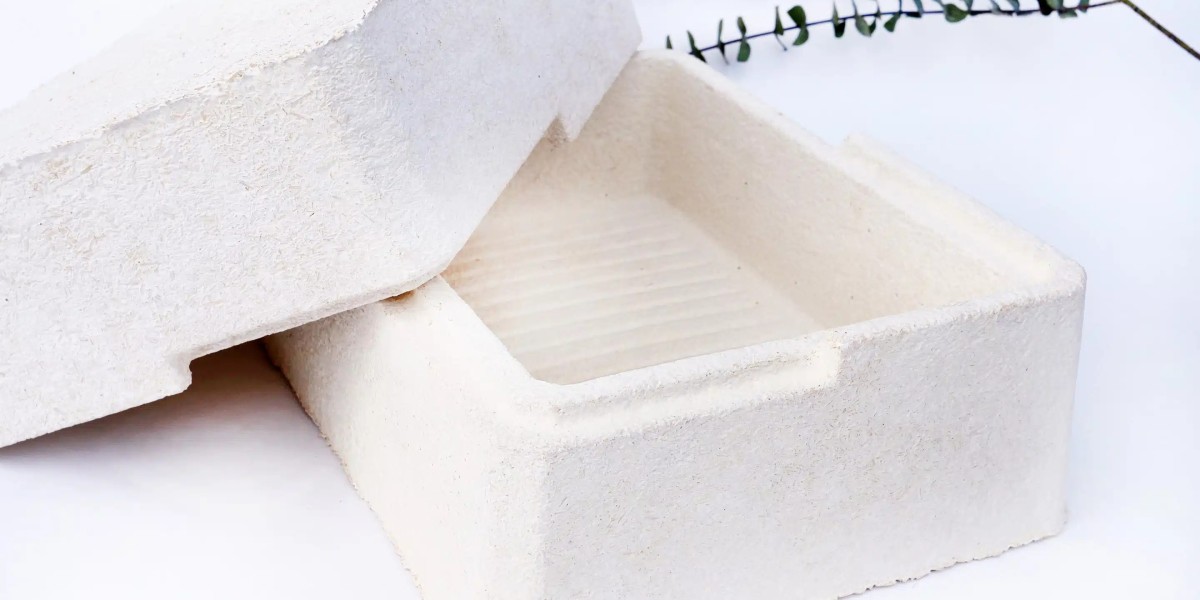The world is continuously moving towards more sustainable practices, with industries actively seeking innovative ways to reduce waste and environmental impact. The mushroom packaging market has emerged as a significant player in the eco-friendly packaging industry, and new entrants are now driving this market toward even greater potential. These innovative companies are revolutionizing the way products are packed, offering an environmentally friendly alternative to traditional packaging materials like plastic and styrofoam.
Mushroom packaging, also known as mycelium packaging, is a biodegradable material made from the root system of mushrooms, known as mycelium. It is grown in molds, forming a protective and sturdy material that can replace various packaging materials. The rise of this market is not only due to environmental concerns but also because of growing consumer demand for more sustainable products.
Key New Entrants in the Mushroom Packaging Market
The mushroom packaging industry has caught the attention of both established packaging companies and new startups looking to make their mark in the sustainability sector. These new entrants bring fresh perspectives and technological innovations to the market, each contributing in unique ways to the development and scaling of mushroom-based packaging solutions.
One such entrant is Ecovative Design, a pioneer in the mycelium packaging field, known for creating custom packaging solutions. Their innovative approach focuses on leveraging agricultural waste to reduce costs and environmental impact, making it a cost-effective alternative to plastic-based packaging. By using their technology, Ecovative is already helping big companies such as IKEA and Dell reduce their carbon footprint, showing the power of mycelium packaging on a global scale.
MycoWorks is another noteworthy startup focusing on creating high-quality, sustainable materials from fungi. Their flagship product, Reishi, is a mycelium-based alternative to leather, but the company is also venturing into mushroom-based packaging. MycoWorks leverages its cutting-edge technology to create a packaging material that can be molded to specific requirements while being environmentally friendly and lightweight.
Livelihoods is another new player in the mushroom packaging field, committed to reducing global plastic consumption. They have partnered with large corporations, such as Unilever, to develop mycelium-based packaging solutions that help address sustainability challenges. The company’s dedication to developing packaging solutions that are both biodegradable and cost-effective is gaining traction in various industries, from cosmetics to food.
Additionally, Mushroom Packaging Solutions (MPS) is a recent startup bringing mushroom packaging to the forefront of e-commerce and retail industries. They have introduced innovative designs for product protection that utilize sustainable materials while maintaining product integrity during shipping. MPS focuses on ensuring the packaging’s strength and resilience, offering reliable alternatives to polystyrene and plastic.
Finally, BioPak is another new entrant that has entered the mushroom packaging market with a unique offering of mycelium-based packaging for foodservice businesses. Their focus on creating environmentally responsible alternatives for takeaway containers, cups, and plates has made them a sought-after choice among eco-conscious consumers.
Challenges and Opportunities for New Entrants
While the mushroom packaging market is growing rapidly, it is not without its challenges. One of the primary hurdles is the scalability of mycelium packaging. The production process can be time-consuming and expensive, limiting its adoption among smaller businesses. However, new entrants are working to address these challenges by refining production methods, increasing efficiency, and reducing costs. By improving manufacturing processes, they aim to make mushroom packaging a viable solution for companies of all sizes.
The increased demand for sustainable products presents a significant opportunity for new entrants to expand their market share. As more companies seek alternatives to traditional plastic packaging, mushroom packaging companies are well-positioned to fill the gap with eco-friendly, biodegradable options. Furthermore, the ability to mold mycelium into custom shapes gives these companies a competitive edge over traditional packaging providers, allowing for greater versatility in product design and functionality.
The Road Ahead
The future of the mushroom packaging market looks promising, thanks to the efforts of new entrants bringing fresh ideas and pushing the boundaries of innovation. As consumer demand for sustainable solutions continues to grow, these companies will play a pivotal role in transforming the packaging industry. With advancements in technology, improved production techniques, and increased awareness of the environmental impact of traditional packaging materials, mushroom-based packaging is set to become a mainstream solution in various industries.
In conclusion, the mushroom packaging market is quickly emerging as a significant force in the packaging sector. New entrants are driving innovation, offering cost-effective, eco-friendly alternatives to traditional packaging materials. The combination of technological advancements and growing consumer demand for sustainability makes mushroom packaging a compelling choice for companies seeking to reduce their environmental footprint while maintaining product integrity.



